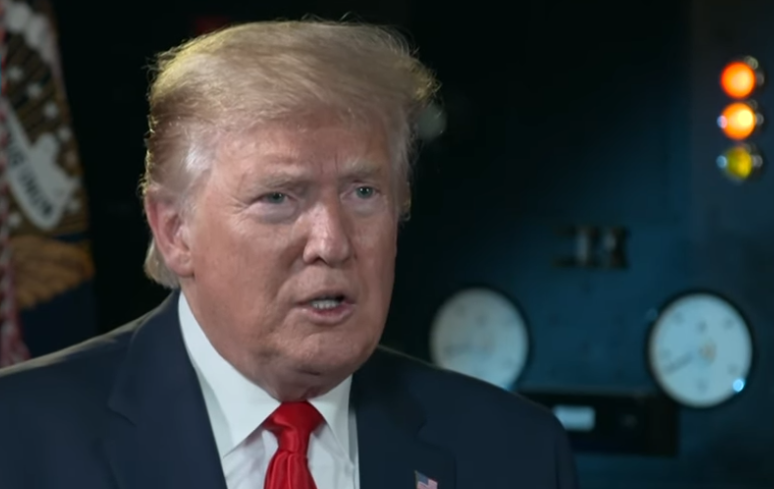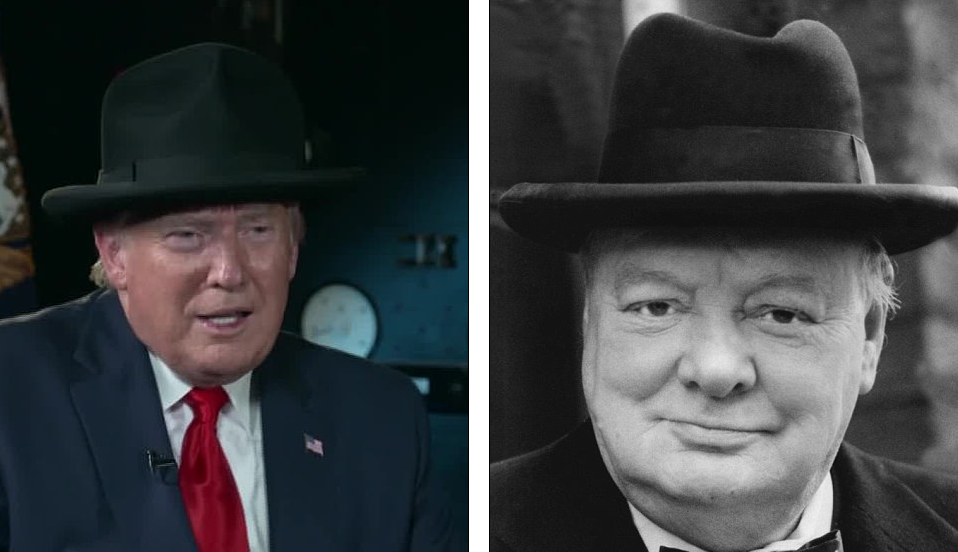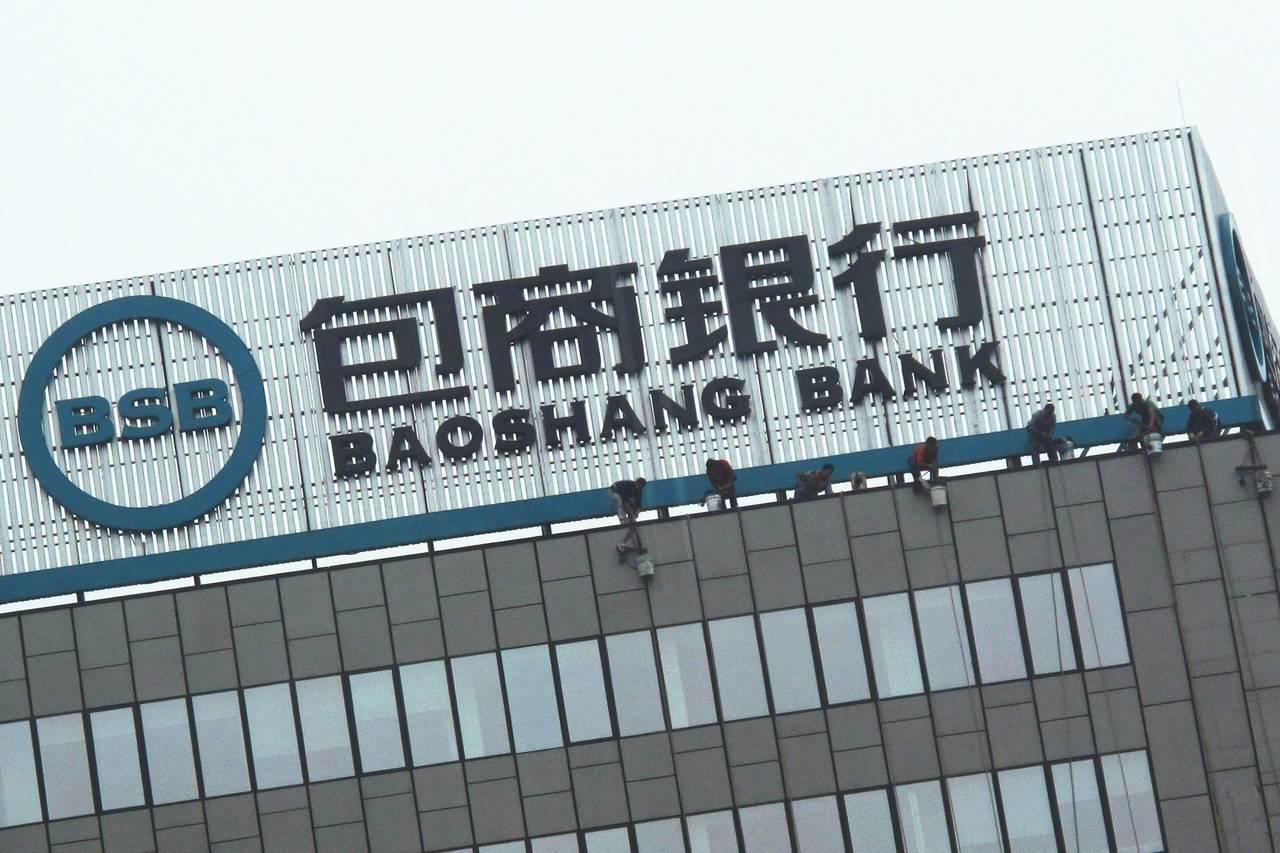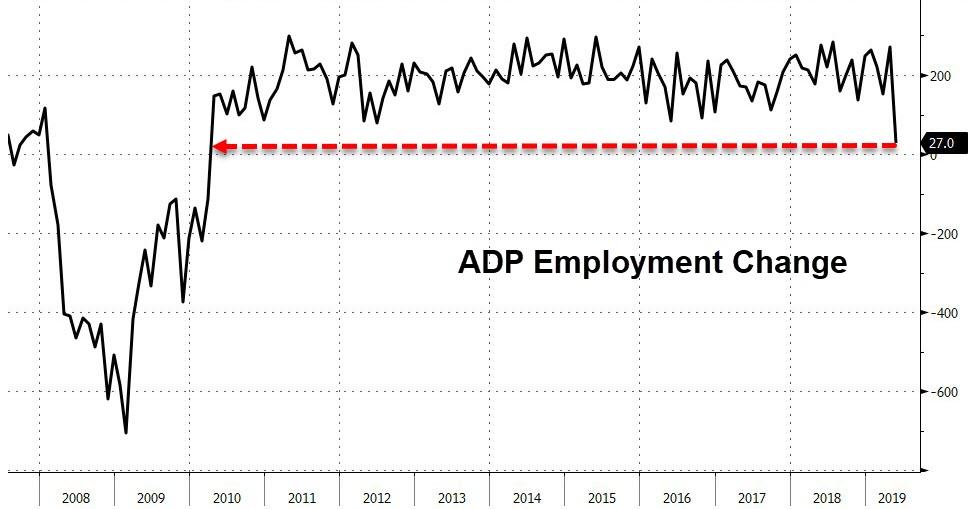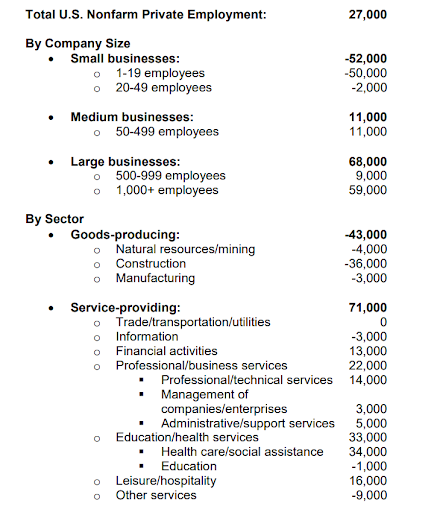In a wide-ranging interview with Piers Morgan on Good Morning Britain, President Trump said that he’s ready to press the nuclear button if and when the time comes.
When asked if he would negotiate with Iranian President Hassan Rouhani to avoid war, Trump said “Of course. I’ve said that and he’s said that. I know so much about nuclear weapons and I see the horrible damage done. I don’t want that.”
Morgan then asked Trump if he would press the nuclear button, to which Trump replied: “I think it’s a terrible responsibility but one I’m prepared to handle,” adding “I don’t want to have to think about it, but there may be a time when I do have to think about it.”
At one point in the interview, Morgan presented Trump with a monogramed “Churchill” hat, which Trump said “looked much better” on Churchill.
The Daily Mail sums up the rest of the interview, which spanned topics from gun control to climate change.
On Prince Harry and Meghan Markle
Donald Trump said it was ‘OK’ for the Duchess of Sussex to make ‘nasty’ comments about him as he sought to clear the air with the American-born royal.
He also insisted that her husband, Prince Harry, ‘couldn’t have been nicer’ towards him during his state visit to the UK.
Asked point blank if he thought Meghan Markle was ‘nasty’ or not, President Trump replied: ‘They said some of the things that she said and It’s actually on tape. And I said: ‘Well, I didn’t know she was nasty’. I wasn’t referring to she’s nasty. I said she was nasty about me. And essentially I didn’t know she was nasty about me.’
He went on to say: ‘You know what? She’s doing a good job, I hope she enjoys her life… I think she’s very nice.’
Pressed by Piers to clear up the statement he made earlier about the Duchess unequivocally , he added: ‘… she was nasty to me. And that’s okay for her to be nasty, it’s not good for me to be nasty to her and I wasn’t…’
He also said that he had spoken to Prince Harry and what he said to the young royal at a recent meeting.
Piers asked, ‘Did you get a chance to talk to Prince Harry?’
President Trump replied: ‘I did, I did and I congratulated him and I think he’s a terrific guy. The Royal Family is really nice.’
Piers added: ‘Did he say: ‘Come on – do you think my wife’s nasty?’
POTUS replied: ‘We didn’t talk about it…I was going to because it was so falsely put out there. And when you see that transcript and you see, it’s the exact opposite of what they said. Did you look at the transcript?’
Talking about Harry’s behaviour, he added Prince Harry had been far from frosty, saying of the rumours that he didn’t want to talk to him: ‘…No, no, no, just the opposite. In fact, he spent a lot of time talking to Ivanka and talking to my family. I went up – he couldn’t have been nicer. Couldn’t have been nicer… I think he’s great.’
On the Queen
Donald Trump said he watched the Queen’s coronation in 1953 when he was six-years-old with his mother Mary, who was born and raised in Scotland.
‘Well she would have been very proud. She would’ve never thought in terms of ‘president’ because I never talked in terms of running for president. I decided to do it and I won. I said to a couple of people: ‘I think I’m going to do it’ and then I said to my wife: ‘I think I’ll give it a shot.’ She said: ‘You know you’ll win.’
‘But I will say that my mother would have been very proud. She was a tremendous fan of this country and she was… she loved Scotland. She grew up in Stornoway. She left at 19 for New York, she met my father and they were married for…
‘She loved the Royals, she loved the Queen. And I always noticed, whenever anything was on about the Queen she would watch. She was a big fan of this…I told her [The Queen] last night. She was very honoured. But my mother would always… she just had great respect. She understood. My mother understood people very well. She knew people. And she got it right from the beginning. The Queen is a great lady and my mother knew that.’
Was yesterday the greatest experience of your life?
‘I’ve been through some pretty big things. I watched the news and heard ‘he’s never had to handle things like this’ when I was due to walk into Buckingham Palace.
‘It’s right up there.’
What did you discuss with the Queen?
‘We had a long conversation, an hour and a half. But I can’t tell you about that as I’ve heard we’re not allowed to.
‘I think I’m on good behaviour most of the time. I really got what the media were saying, [about visiting the Palace being a huge moment] especially when you were talking in with the Queen, very slowly and with that certain music.’
Prince Charles and climate change
President Trump revealed that Prince Charles stressed the importance of protecting the environment for future generations in their meeting. The pair had a long conversation in which the royal shared his views.
The President explained: ‘We were going to have a 15-minute chat. And it turned out to be an hour and a half. And he did most of the talking. He is really into climate change, and I think that’s great, I mean I want that, I like that’
Piers asked whether Trump had listened to what the Prince had to say. Replied Trump: ‘What he really wants, and what he really feels warmly about is the future. He wants to make sure future generations have climate that is good climate as opposed to a disaster. And I agree.
‘I did mention a couple of things, I did say, ‘Well the United States right now has among the cleanest climates there are, based on all statistics, and it’s even getting better,’ Because I agree with that, I want the best water, the cleanest water. Crystal clean – it has to be crystal clean…’
Piers then expressed that people want to hear that the President understands that ‘climate change is a very real and present danger’. Said Piers: ‘And if we don’t tackle it now – and America has to lead the way along with China and India – then we’re going to be in serious trouble’
Replied Trump: ‘Well you know, you just said it. China, India, Russia, many other nations they have not very good air, not very good water in the sense of pollution and cleanliness. If you go to certain cities, I’m not going to name cities, but I can. If you go to certain cities you can’t even breathe and now that air is going up, so if we have a clean, in terms of a planet, we’re talking about a very small, you know, very small distance, between China and the US, or other countries.
Piers went on, ‘Were you able to give Prince Charles any comfort, that you as the United States President are taking this seriously.’
Said Trump: ‘I think I was yeah. I think, I think we had a great conversation and it was about, as you would call it, climate change, but, I think we had a very, very good time.
Piers also asked Trump whether Prince Charles had moved him.
Trump continued: ‘I’ll tell you what moved me is his passion for future generations he’s really not doing this for him. He’s doing this for future generations. He wants to have a world that’s good for future generations.’
‘Now he’s Prince Charles, he doesn’t have to worry about future generations in theory, unless he’s a very good person who cares about people. And that’s what impressed me, maybe the most, his love for this world.’
On banning transgender people from the armed forces and not serving in Vietnam
Transgender service had been barred until President Barack Obama’s changed the rule. Donald Trump announced a policy changes of his own on Twitter in July 2017 that were later officially codified by the Pentagon and then-Secretary of Defense James Mattis.
Why don’t you allow transgender people to serve?
‘Because they take massive amounts of drugs, they have to. And if you’re in the military you’re not allowed to take any drugs. They have to after the operation, they have no choice. And you’d have to break rules and regulations to have that.’
But the medical bills are very low. Isn’t it unnecessary?
‘It is what it is. Massive amounts. Also people were going in and asking for the operation. Then they take large amounts of drugs after that, you can’t do that. So when it came to the decision on that, the cost of the drugs and operations, you couldn’t do that.
‘You have to have a standard and you have to stick to that standard. You have very strict rules and regulations on drugs and prescription drugs and they blow it out of the water.’
Do you wished you’d served in Vietnam?
‘I was never a fan of that war. I thought it was a terrible war, it was very far away.
‘Nobody had heard of Vietnam… this wasn’t like fighting against Nazi Germany or Hitler. I wasn’t out on the streets marching or saying I would move to Canada but I wasn’t a fan.
‘I would have been honoured [to serve in the military generally] but I think I’m making up for it now because we’re rebuilding our military at a level you’ve never seen before.’
Is it not beneath you to attack John McCain when he’s dead?
‘I don’t attack him. I didn’t bring his name up, you did. I was not a fan, I didn’t like what he did to healthcare or veterans. But Piers, you’re asking me a question, if you didn’t ask me about John McCain I wouldn’t talk about him.
‘I didn’t know anything about the battleship and I’m not even sure if it happened. I hear it’s fake news, maybe it is, maybe it isn’t. But again, I don’t talk about John McCain unless someone asks me about him.’
On Jeremy Corbyn
Piers Morgan also quizzed the President on whether he could see himself doing a trade deal with Jeremy Corbyn if he became Prime Minister, after he declined to meet the Labour leader during his trip to the UK.
Asked by Piers, ‘Could you imagine actually doing a trade deal with Britain, with someone like Jeremy Corbyn as a leader?’, Trump replied: ‘It’s always possible. Anything is possible.
‘I don’t know him. He wanted to meet, it was a very tough to meet and probably inappropriate to be, to be honest with you. A lot of things are happening right now with respect to our country and your country, my country and let’s call the almost the same because I feel that way, it’s really a tremendous relationship. So, I didn’t think it was appropriate to meet him, but I would. I certainly would have no problem with it.
‘I think it’s a long shot when you say that, you know, I don’t, I don’t think it’s going to happen.’
UK knife crime vs US gun crime
‘But in London you have stabbings. I read an article… they said your hospital is a sea of blood.
‘But Piers, when somebody has a gun illegally and the others don’t they have no chance. The bad guys are not getting rid of their guns. The people who obey the laws are sitting ducks. The thing I think about the most is Paris… if there was a gun on the other side…’
Why do you need AR-15?
‘A lot of them use them for entertainment, they do. They go out to ranges and shoot them.’
‘If the [Vegas] guy didn’t have guns he’d have used bombs or something else. The guy was very clever and a successful gambler… Then he went out and did that […].’
Piers claims he convinced him to ban bump stocks. What do you think about silencers?
‘I’d like to think about [banning silencers]. I’m going to seriously look at it. I don’t like the idea of it, what’s happening is crazy.’
On the next US election
Will you win the next election?
‘I’m running on maybe the greatest economy we’ve ever had… I’m in the midst of several trade negotiations where I have the cards. I have the cards on Mexico… so I have a lot of things that we’re working on.
‘I don’t see any Democrats to worry about, there are no Winston Churchills in the group, let’s put it that way.
‘When I took over Isis was all over the place now we’ve taken over 100percent of the caliphate.’
On the NHS
Piers asked: ‘No leader, no leader it seems to me, would allow Britain to effectively sell the NHS as part of a trade deal. Would you as the American President see that as ‘deal breaker’ if none of the NHS was on the table?’
The President replied: ‘I don’t see it being on the table. Somebody asked me a question today and I say everything is up for negotiation, because everything is. But I don’t see that as being, that something that I would not consider part of trade. That’s not trade.’
Watch the full interview below:
via ZeroHedge News http://bit.ly/31cr6cb Tyler Durden
